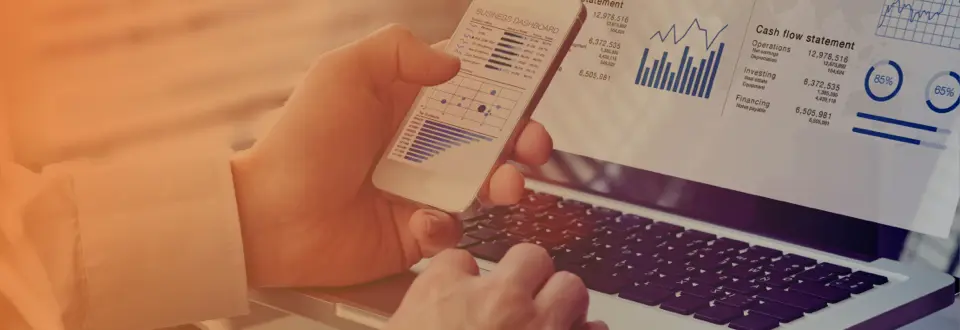E-invoices and PLX pioneering

The Vietnam National Petroleum Group (Petrolimex) officially applied electronic billing for all petroleum member companies as of April 1. On the occasion, the Cong Thuong (Industry & Trade) magazine talks to Petrolimex Deputy Director General Tran Ngoc Nam for more details.
Deputy Director General Tran Ngoc Nam (centred) at the e-invoice go-live ceremony
First of all, congratulations for the successful launching of electronic billing in the whole system of Petrolimex on April 1. Could you please speak about the significance of the project?
Together with the successful application of SAP/ERP corporate management system and EGAS petrol station management system, Petrolimex has attached much importance to electronic billing and started carrying out the project in May, 2015 with the aim to apply technology into production management and corporate management on the basis of maximising advantages of the electronic databases made available over the past time.
Till now, e-invoices have been successfully piloted at the Group’s headquarters and three petroleum member companies, which shows advantages over paper invoices. The issuance of electronic invoices reduces the burden on administrative procedures, facilitates customers and cuts business costs. Of note, electronic billing ensures the openness and transparency of information; facilitating State management bodies to search for information for examination purpose.
With the official launching of e-invoices in the whole system on April 1, we are so proud of and once again affirm Petrolimex’s pioneering in applying advances of the fourth industrial revolution.
How significant electronic billing is and its benefits to State bodies and customers?
Electronic invoices were highly recommended by the Government in 2010 in accordance with the Decree No 51/2010/ND-CP dated May 14, 2010, which was later detailed in the Ministry of Finance’s Circular No 32/2011/TT-BTC dated March 14, 2011. With the application of electronic billing, the Group continues strictly abiding by the Ministry of Finance’s regulations and following suit the State policy.
For customers, Petrolimex always targets to provide them with best products and services, and electronic invoices will help them Save time in receiving invoices; Easilysearch for information on Petrolimex website and Safely store invoices.
A training workshop on e-invoice application at Petrolimex Ha Giang
How will customers search for and use electronic invoices for making corporate financial statements and present invoices to State bodies, for example, tax authorities?
Customers and Petrolimex alike are well aware of the significance of e-invoices in a business’s operation, especially the provenance of origin of a tangible commodity like petrol. With that in mind, along with proposals from the solution supplier - the partnership VNPT-Vinaphone-Dakta, we have designed functions to help customers search for invoices easiest.
Each time a bill is issued, customer will receive “a note to search for e-invoice” or an email “notifying invoice issuance” which provides the customer with a search code and the website address to look for electronic invoices. In addition, for customers that need to get electronic invoices regularly, we will provide them with an account to help them best manage their invoices.
When applying electronic billing, petroleum is in transportation process. So what is the evidence showing that the petroleum being transported is legal, not counterfeit?
Transparency in business, especially in the process of transportation, is a top priority of Petrolimex. Electronic invoices will help the Group reduce the risk of fake invoices and fake origin of legitimate products. The proof of origin of tangible goods in circulation has been guided in detail by the Ministry of Finance in Article 12 of Circular No 32/2011/TT-BTC. Accordingly, upon customer’s request, Petrolimex will use the “invoice conversed from e-invoice” in the form regulated by law, and the invoice has “code search” content to enable customers, competent authorities to easily check and compare with the information printed on the e-invoice.
PLX has always taken the lead in applying science and technology in production and business activities and corporate management. What will be the next focus after e-invoices?
Besides e-invoices, Petrolimex is working out plans to apply scientific and technical advances with the aim to improve not only mode of production and business, and corporate management but also product quality to provide best products and services for the market and consumer.
This includes the continued research and development of the remaining modules of the SAP/ERP human resource management system, the application of automation system in the delivery and receipt of petroleum at Petrolimex warehouses/depots, the management and regulation of concentrated road transportation of petroleum, and so on. The upcoming projects will be widely publicised, hopefully meeting with warm response from customers.
How much did it cost Petrolimex annually to use traditional self-printed paper invoices? Is this amount saved when applying e-invoices?
With a large-scale provision of goods and services across the country, Petrolimex issued some 20 million invoices annually, and spent tens of billion of dong on printing. Once e-invoices are used, financial efficiency will far exceed the figure mentioned above.
In particular, we have saved much from reduced investment into purchasing and operating printing facilities, sending invoices to customers and storage costs; whilst reduced risk of torn and lost invoices. That the issuance and searching for e-invoices is easily done will help petrol station workers spend more time for the refurbishment of facilities and caring more for customers’ needs. Profits gained for both customers and Petrolimex are what we feel really satisfied with when using e-invoices.
In addition to the issuance of e-invoices, does Petrolimex submit related documents to State management bodies and send business letters to customers informing them of e-invoice and instructions to use it?
The application of electronic billing by the Vietnam National Petroleum Group complies with the Ministry of Finance’s Circular No 32/2011/TT-BTC. Accordingly, the Group’s office and 43 member companies have completed the submission of the Decision on e-invoice application; Notice of issuance of e-invoices; and Sample invoices to competent authorities that gave the go-ahead for the application of e-invoices as of April 1.
For customers, apart from a press release posted on the Group’s official website, we have, through different means of communications, informed and guided them how to look up electronic invoices. Specifically, for each company, we requested communications staff to approach each customer, hanging banners promoting electronic billing at all petrol stations, organising e-invoice go-live ceremony, establishing a hotline and a 24-hour customer support team, and designing a user-friendly portal to enable customers to exploit all functions.
With careful and thorough preparations from infrastructure, information technology to professional training for each sales worker, we are strongly convinced that the implementation of electronic billing will be successful since April 1, 2018.
Thank you for your time!











